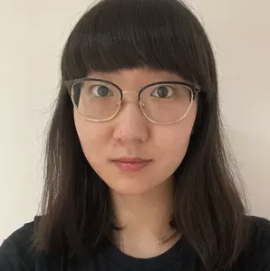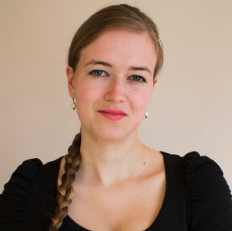
Chenxu Hao is a postdoctoral researcher in the Socially Perceptive Computing Lab, Department of Intelligent Systems, Delft University of Technology. She completed her Ph.D. in Cognition and Cognitive Neuroscience from the Department of Psychology, University of Michigan. Her research interest lies in the intersection of cognitive psychology and artificial intelligent (AI) systems. Particularly, she is interested in the problem of how to design AI systems that facilitate complex decisions that involve risks and uncertainty.

Myrthe Tielman is an Assistant Professor in the group of Interactive Intelligence, Delft University of Technology. With a background in cognitive artificial intelligence and human-computer interaction, her research interest lies in how we can create technology which interacts with humans in a meaningful way. In her work, she aims to combine methods from the field of Human-Machine Interaction with knowledge based AI and formal modelling. Much of her work revolves around the theme of responsible and trustworthy AI. In particular, she is interested in how we can help AI systems understand people better. For instance, to understand people's values, how much a person trusts an AI system and whether a person understands the AI system back. In her ideal world, we will have AI assistants which inspire appropriate trust, which take into account people's values, which are explainable in their decision making and which understand the capabilities and needs of the humans they support.

Mark Neerincx is full professor in Human-Centered Computing at the Delft University of Technology, and senior research scientist at TNO Perceptual and Cognitive Systems. He has extensive experience in fundamental and applied research on human-computer interaction, among other things in the domains of health, security, defense, and space; as initiator and project leader, in large national and international research programs. Recent projects focus on the situated cognitive engineering of electronic partners (ePartners) that enhance the social, cognitive and affective processes in human-automation teams.

Jasper van der Waa works as a researcher at TNO, the Dutch institute for applied sciences, on human-AI interaction, responsible AI development and explainable AI. He received his PhD cum laude at the Technical University of Delft and received TNO’s young excellent researcher award. He leads research programs on explainable and responsible AI in the healthcare, energy transition and military domains. Furthermore, he organizes conferences and workshops in related fields for scientific and industry communities. Overall his aim is to develop ways how society can responsibly create AI systems that can collaborate effectively and safely with humans.

Maaike de Boer (PhD) is a senior Scientist at TNO within the Data Science department. She obtained her bachelor (2011) and master (2013) degree in Artificial Intelligence (with a minor in Linguistics) at the Utrecht University and her PhD (2017) at the Radboud University Nijmegen, in collaboration with TNO. Her PhD thesis named Semantic Mapping in Video Retrieval focused on using techniques from semantics and machine learning to improve performance in the field of complex video retrieval. At TNO Maaike mainly focuses on text mining and combining data-driven methods and knowledge-driven methods (such as ontologies) to get the best of both worlds. She is part of the transfer lab between TNO and the Dutch Hybrid Intelligence program, and the case study on the Health Care domain.